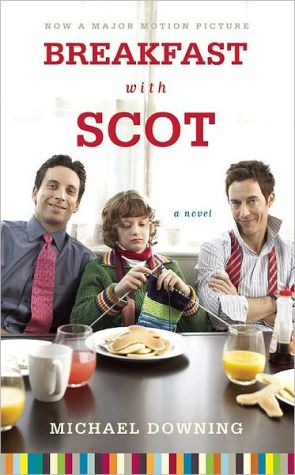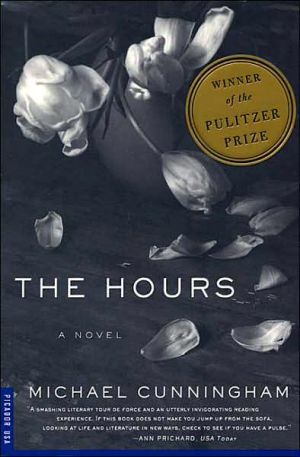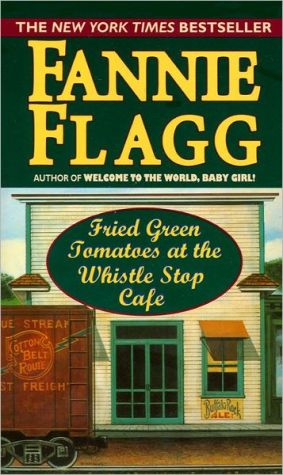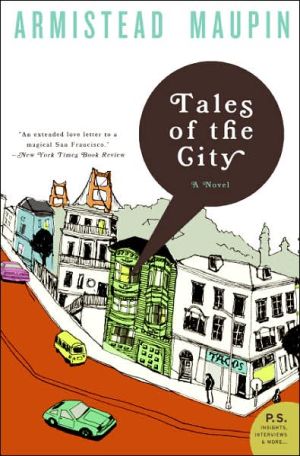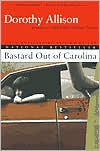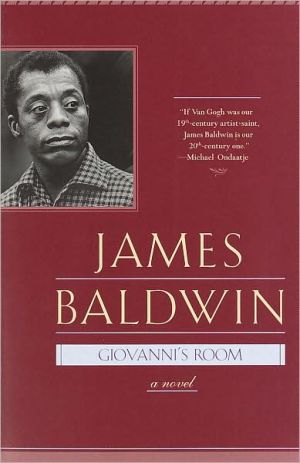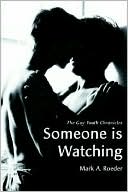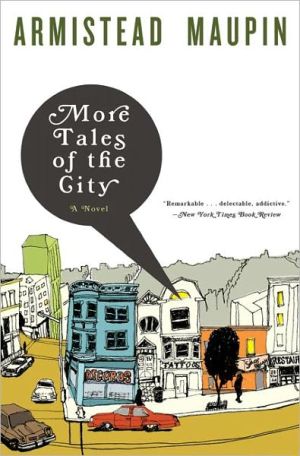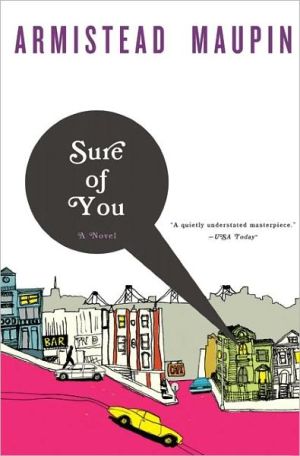Breakfast with Scot
Sam and Ed are living the good life: happy, healthy, devoted to each other and their careers, they have no yearning for the joyful mysteries of parenthood. But when eleven-year-old Scot's mother suddenly dies, the couple is determined to make good on a wine-soaked promise made years before. They hang a tire swing in the back yard and call the neighborhood school to arrange enrollment. Scot arrives just in time to start fifth grade—with a pair of lacy white socks in his duffel bag. \ With wry...
Search in google:
Sam and Ed live the high life, and see no reason to add to their happy twosome. Then 11-year-old Scot’s mother dies, and a wine-soaked promise pushes the couple into parenthood. They dutifully make all the usual arrangements, but Scot is far from usual, sporting makeup and enduring bullying at school. Soon Sam and Ed begin to question their parenting, their commitment to each other, and the compromises they’ve made to live in a straight society. Breakfast with Scot is a humorous, heartwarming novel about the true meaning of family.Baltimore SunBittersweet and sophisticated...The highlight of the book is its poignant attention to the exquisite humiliations that daily afflict all three of its main characters.
\ Baltimore SunBittersweet and sophisticated...The highlight of the book is its poignant attention to the exquisite humiliations that daily afflict all three of its main characters.\ \ \ \ \ Greg BottomsScot [is] one of the great child creations of recent literature—a dainty, prepubescent Holden Caulfield with a thing for neckerchiefs.\ —(Salon)\ \ \ Greg Bottoms"Having a child, I soon learned, is like having an open wound. People ask you about it. They give you advice and secret remedies. Friends tell you to ignore it for a while and see if it doesn't heal itself. Everyone assures you that it won't kill you. And then they show you their scars." So writes Michael Downing in his funny and affecting fourth novel, Breakfast With Scot, about a Cambridge, Mass., gay couple who inherit an 11-year-old boy.\ Downing has constructed a light-as-air divertimento out of short, quirky episodes that move briskly toward (usually funny) punch lines about gender, sexuality, child-rearing, American families, etc. The plot turns on a drunken promise. Ed, the book's narrator, an editor at an obscure art magazine, and his live-in lover of many years, Sam, a New Age chiropractor, are having dinner with Sam's brother, Billy, and Billy's girlfriend, Julie; at one point the straight couple slur that should anything ever happen to them, Sam and Ed have to care for their son, Scot. Equally drunk, Sam and Ed agree, because, well, it would be rude, even hurtful, to say no.\ Time passes. Sam and Ed go about their happily monogamous life in liberal Cambridge. Then Julie, now separated from Billy, dies while she is shooting up (a bubble in the syringe), and it turns out that she has named Sam Scot's legal guardian. (The shiftless Billy and his new girlfriend are by then living in South America.)\ That's the setup. The main action, which takes place in the first few months after Scot's arrival, adds up, as you might expect, to a wry look at a new configuration of the American family. But there is a twist -- a near-brilliant one, which pushes the novel's humor and pathos to the limit: Scot is an 11-year-old Truman Capote or Quentin Crisp, limp wrists and all. He shows up with a musical hairbrush and two makeup kits. He loves Pink Gardenia hand lotion and pantyhose and won't leave the house without his Chap Stick. He wears a white patent-leather belt with "pink dancing dogs and jazzy little musical notes" on it, and his interest in school sports is limited to baton twirling and possibly cheerleading.\ Everyone in the fifth grade thinks he's gay, of course, but he's too young to know what he is -- only that he isn't like most other boys. (Delicate and otherworldly, he reminds Ed of a cherub in a pre-Renaissance painting.) Sam and Ed finally admit to each other that his flamboyant behavior embarrasses them; Ed confesses that when he looks at Scot, he sees what the school bully sees.\ The book's domestic dramas are deftly done and convincing enough to make you wince or laugh, or else to bring a lump to your throat. The novel is not simply a comedy of upside-down manners but also a testament to the joys and foibles of parenting (however you define it) and to the amazing resilience of "different" children in the face of banal, everyday cruelty. The characters are interesting and complex; 30 pages in, it's easy to forget that they're fictional, that this isn't heartfelt testimony from a parent about a real son. And the most interesting and complex of them all is Scot, one of the great child creations of recent literature -- a dainty, prepubescent Holden Caulfield with a thing for neckerchiefs.\ — Salon\ \ \ \ \ \ NewsdayWitty, poignant, laugh-out-loud funny, deftly insightful...It's a turn-of-the-millennium look at parenthood, families, relationships and who gets to wear eyeliner.\ \ \ \ \ Publishers Weekly\ - Publisher's Weekly\ Two gay men--one a New Age chiropractor, the other an editor at an ultra-hip Italian art magazine--live happily together in Cambridge, not too far from Harvard. Sam (the chiropractor) learns that his brother's ex-girlfriend has suddenly died and named Sam legal guardian of her 11-year-old son, Scot. What follows is a wry look at how Sam and Ed adjust to surrogate parenthood, which they had politely, drunkenly and hypothetically agreed to years before. When Scot arrives at their home, these two generous, good-hearted men discover that they have a prepubescent Quentin Crisp on their hands. Scot's flamboyant, androgynous flair makes for some school yard and neighborhood crises, but the boy's innate sweetness and open-mindedness endear him to several youngsters and most adults. The action centers around the adjustments everyone is forced to make during the first semester of Scot's fifth grade at Parker Elementary School, where Scot learns that he must stop wearing pantyhose, eyeliner and perfume. Narrated by Ed, both the action and the asides are loaded with wit and emotion. By the time Sam's brother, Billy, unexpectedly returns from South America, readers know that Scot, Sam and Ed are a real family, and that the two men, patiently immersed in the joys and pains of parenting, are the boy's heroes. The prose in Downing's (Perfect Agreement) fourth novel is melodious and lucid. This heartwarming tale nobly defines and describes a potent, realistic new configuration of contemporary American family values. (Nov.) Copyright 1999 Cahners Business Information.\ \ \ \ \ Francis M. ShonkwilerFilled with appealing characters and sharp dialogue, Downings deft fourth novel is realistic and lighthearted— and the precocious Scot an unpredictable hero.\ —OUT\ \ \ \ \ Kirkus ReviewsA middle-aged gay couple's misadventure in parenting is the subject of this wisecrack-laden fourth novel by the author of Mother of God (1990), etc. Life is moving along in an agreeable rut in Cambridge, Mass., for Sam, a busy chiropractor, and his partner Ed, who works for a tony art magazine (Figura) owned by a jet-setting cheapskate. But then unmarried Julie, Sam's brother Billy's former girlfriend, dies, and—thanks to a solemn promise made during a convivial drunken evening out—Sam and Ed inherit, if you will, guardianship of Julie's 11-year-old son Scot. This kid isn't your typical troublesome preadolescent. Scot owns a musical hairbrush and two make-up kits, uses Pink Gardenia hand lotion and won't go anywhere without his Chapstick, plus his interest in school sports is limited to baton twirling and an ambition to become a cheerleader. Downing tries to work up a perfunctory plot from Sam's vow to put "more strut and less swish" into their charge and from the complications that ensue when it's discovered that Scot isn't the only issue Julie and Billy created. But Downing doesn't seem to have decided whether to write a serious comic study of how Sam's and Ed's relationship is both tested and clarified by the changes Scot brings or a TV movie script festooned with one-liners. Some of the latter are pretty good (gay-couple friends own a "feral poodle"; Ed repeatedly asks himself "What do you say to a boy in a neckerchief?"). The best moments here depict Scot's effect on his guardians' extended family of varyingly deranged friends and on his "normal" schoolmates (who hassle him mercilessly and would doubtless prefer to burn him at the stake). The TV movieought to be fun. And with the (really rather endearing) figure of Scot, some lucky young actor will have the flamboyant role of a lifetime.\ \
